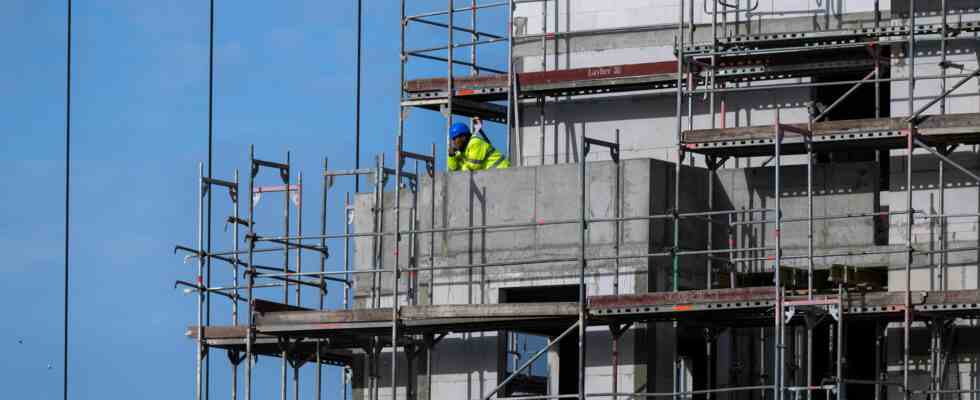Status: 12/28/2022 10:48 a.m
Because the construction of new apartments and houses is becoming too expensive, clients stop their projects in droves. The construction industry is demanding help from politicians to prevent a slump in residential construction.
Expensive materials, higher interest rates and many canceled projects: the German construction industry is warning of a slump in residential construction and is demanding support from politicians. In previous crises such as the corona pandemic and the global financial crisis, the federal government made large state investments, Felix Pakleppa, general manager of the Central Association of the German Construction Industry (ZDB), told the German Press Agency. “If not now, when will politicians invest in construction?”
More state aid for housing
According to Pakleppa, Germany’s population has grown by around three million people since 2015, many of them from Syria, Afghanistan and Ukraine. They all need housing. Instead, the Federal Ministry of Economics drastically reduced the KfW new building subsidy for 2023 to one billion euros, he criticized. For comparison: by the end of November 2022, KfW approved EUR 16.4 billion for new residential construction.
ZDB President Reinhard Quast called for the new construction subsidy not to be cut and planned special depreciation for residential construction not to be linked to the EH40 standard. EH40 means that a building uses only 40 percent of the energy that a standard home uses. “Builders and construction companies are increasingly groaning under the political guidelines in the area of sustainability.” This makes it almost impossible to build cheaply. “A square meter in residential construction costs around 4,000 euros. It doesn’t go below that.”
In January, the Ministry of Economics prematurely ended the support from the KfW Förderbank for energy-efficient construction and renovation due to a flood of applications. The program continued in the spring and was discontinued shortly thereafter because funds were quickly exhausted. Since then, the funds have only been available for new buildings that meet the strict 40 efficiency house standard and have a quality seal for sustainable building. In the future, the refurbishment of existing buildings in particular is to be subsidised, since according to the ministry the climate protection effect is much greater than in new buildings.
Business climate in the construction sector remains gloomy
The ZDB, which represents around 35,000 medium-sized construction companies, proposed an extension of the special depreciation for new rental apartments. “If it were possible to depreciate each apartment over ten years instead of the two percent currently charged at ten percent, that would give a strong boost to housing construction,” emphasized President Quast.
The construction industry is concerned because many residential construction projects are currently being canceled due to high construction costs and higher interest rates. According to the ifo Institute, 16.7 percent of construction companies were affected by cancellations in November. In previous years it was only one to two percent, said ZDB general manager Pakleppa. Building permits also collapsed in the fall.
The business climate in the construction sector therefore remains gloomy. From spring to late summer, economic sentiment had mostly fallen. The triggers were the Russian war of aggression against Ukraine and the resulting sharp rise in energy prices. Expectations brightened slightly recently, but remained very pessimistic.
Some relaxation in construction prices
In view of the sharp rise in construction prices, Quast sees at least a certain amount of relaxation for builders in the coming year. “For some materials we have passed the zenith.” Wood and steel have become somewhat cheaper again. The situation for glass and ceramics has also eased somewhat recently. Nevertheless, Quast expects higher construction prices in the medium term – also due to higher wages for construction workers.
The construction industry was a pillar of the German economy for a long time and has earned well thanks to the real estate boom. However, the ZDB expects a price-adjusted decline in sales in the industry of seven percent for the coming year.

